In the first of our three-part series of interviews, we aim to help staff and students get to know HYMS’ Dean, Professor Una Macleod, a little better. Una grew up in a small town near Inverness and attended medical school in Glasgow, where she continued to work until about six years ago when she came to HYMS. Una went on to co-found the Supportive care, Early Diagnosis and Advanced disease (SEDA) research group and took up the post of Dean of HYMS earlier this year. Since her appointment, she has been keen to engage with students – she even spent two hours on a Friday evening letting us interview her, covering topics as varied as gender equality in STEMM, and the use of emojis (“I do find emojis very challenging!”).
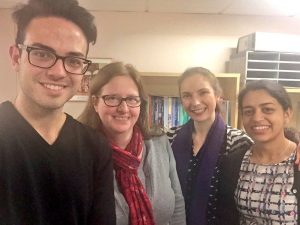 If we were going to attribute an emoji to Una, I think it would be the ‘victory hand’: as the first female Dean of the medical school she is HYMS’ answer to Hillary Clinton, and certainly has the passion and conviction to lead positive change. As we look forward to Una’s International Women’s Day talk on Wednesday 8 March (details below), we found out more about the journey that brought her to HYMS.
If we were going to attribute an emoji to Una, I think it would be the ‘victory hand’: as the first female Dean of the medical school she is HYMS’ answer to Hillary Clinton, and certainly has the passion and conviction to lead positive change. As we look forward to Una’s International Women’s Day talk on Wednesday 8 March (details below), we found out more about the journey that brought her to HYMS.
Welcome, Una! How are you finding your new role as Dean?
Well, I never dreamed I would be Dean! I think it’s going well. If I had come from another place I think it would feel very different, but I was just moving downstairs from another office and I was Trevor [Sheldon]’s deputy for a year – and that’s great because it means I don’t have such a steep learning curve.
You are the first female Dean of HYMS. How do you feel about that?
It’s hard to think, ‘If I were male would my career have looked different?’. In medicine, we’ve have had parity of entrants for a long time, and you get slightly more women coming in at 18 than men. But if you look at professors, the number of women is much smaller. Miriam Johnson and I were the only female professors at the medical school for some time, and we have just been joined by Professor of Palliative Medicine Fliss Murtagh. Of the 30 or so medical schools in the country, six have female Deans: Glasgow, Bristol, UCL, St George’s, Edinburgh – and HYMS.
There have been huge shifts in attitudes towards gender since I was young, but there will always be disciplines that men are attracted to more than women, and vice versa. It’s probably very interesting sociologically why that is. I think the idea that we can expect 50/50 in every single area isn’t realistic; the main thing is to remove barriers. The idea that women could be doctors was won a long time ago – even in the 80s when I was a student – but what seemed to take longer to win was what type of doctor you would be, and whether you would be a senior doctor. Similarly, thirty years ago, there were many barriers to men wanting to do nursing, which is just as inappropriate in terms of gender stereotypes.
There’s this thing called Athena SWAN, which is about the careers of women in science. When I was leading Athena Swan at HYMS, all I wanted to make sure was that our female students understood they could be anything. They might not necessarily know what they want to do right now, but there should be no barriers to their success because they are female. That’s key, and I wanted to make sure we were role modelling that sufficiently. Secondly, I wanted to make sure that students weren’t being exposed to sexism. There’s absolutely no place for rubbish like, “You’re a girl, you can’t be a surgeon”.
You and Professor Miriam Johnson founded the SEDA research group: how was that process?
It’s been very fulfilling. When I came here there wasn’t much of what I would call applied health research in the medical school in Hull (quite a bit in York, but less so in Hull). Miriam was already senior lecturer here and doing work around palliative care, and the two of us made a choice: to trust each other. It’s been fantastic because I came to build a research group, which is very hard to do entirely on your own. Miriam and I are a very good match, and SEDA really are a great group.
What was your dream job when you were a child?
To be a doctor! I think I wanted to be a doctor even before I knew what doctors did. I’m very lucky that I never regretted being a doctor.
How would you describe yourself?
I think I’m very loyal, and quite measured – I don’t really jump to conclusions quickly, and I’m optimistic. And I’m always inclined to see the best in people.
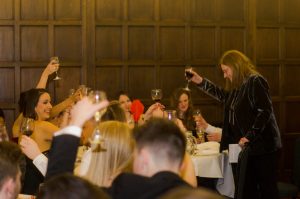
Finally, if you were having a dinner party and could invite anyone you wanted (apart from your Student Blog interviewers!), who would it be?
In no particular order… Hillary Clinton, C.S. Lewis, Simon Schama, Richard Sennett, Oliver Sacks, Miranda Hart, My dad, Nelson Mandela, Jacqueline Kennedy, Elizabeth Garrett Anderson, Ellen DeGeneres, Eleanor Roosevelt, Johnny Cash, and Abraham Lincoln!
That’s definitely a dinner party we’d want an invitation to! Thank you for talking to us.
Hear Una speak in person…
As part of International Women’s Day celebrations at the University of Hull, Una will deliver the talk, “Women in Leadership – some reflections” on Wednesday 8 March, 1pm-2pm. The talk will be video-linked between Ryton Lecture Theatre in Hull and Alcuin AEW003 in York. All students and staff are welcome, and refreshments will be provided. If you would like to attend, please drop the Executive Office a quick email (execoffice@hyms.ac.uk) as soon as possible to ensure you get a share of the tea and biscuits!
Photo credit: the second photo used in this post credited to Adam Bouz Al-Jidy.
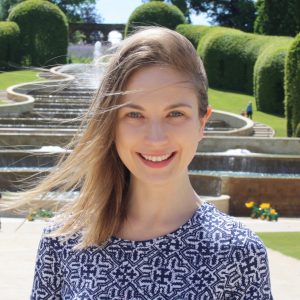
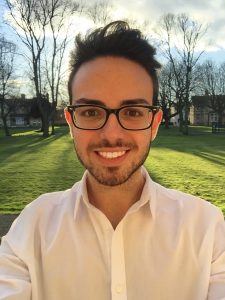
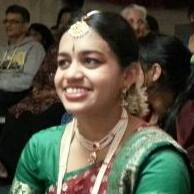 Professor Una Macleod was interviewed by Alexandra Abel, Vassili Crispi, and Chaitra Dinesh.
Professor Una Macleod was interviewed by Alexandra Abel, Vassili Crispi, and Chaitra Dinesh.

